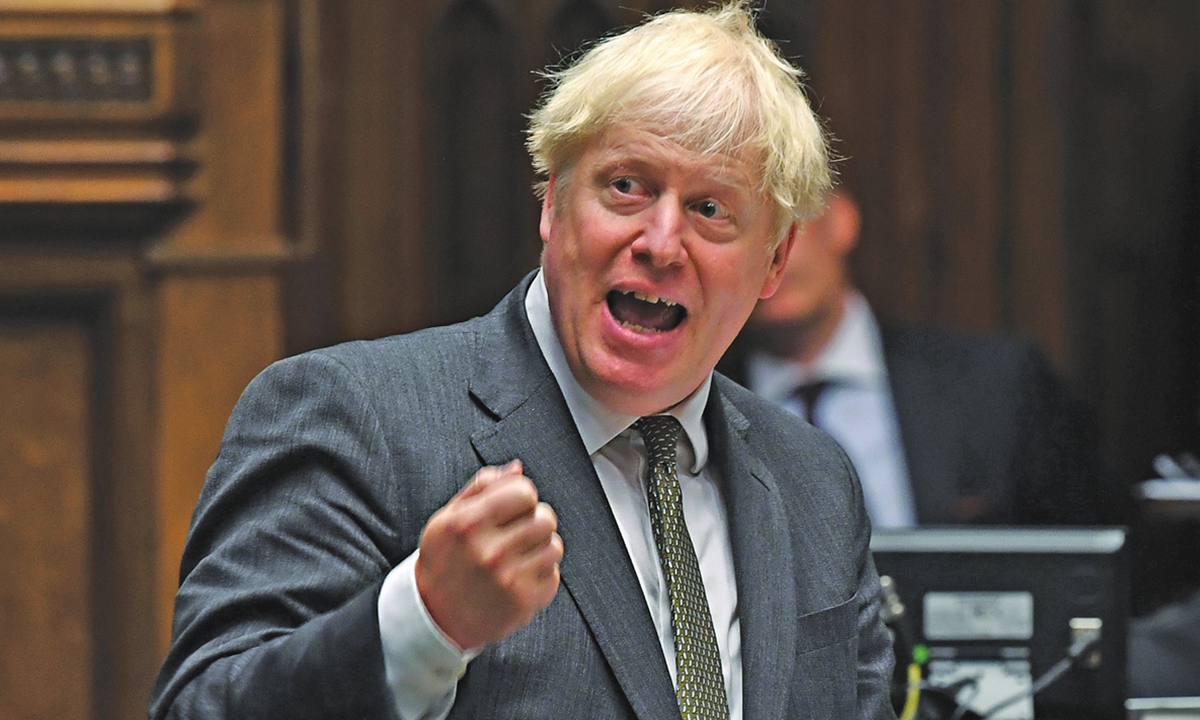
Boris Johnson Photo: AFP
When I first heard that British prime minister Boris Johnson was being touted as a possible new secretary general for NATO, I thought it was a joke, albeit a poor one. But for some of his political supporters in the UK and Europe it is no joke, they are perfectly serious, and that makes it no laughing matter for both the transatlantic alliance and the rest of the world.
I don't even know if he would want the job when he leaves 10 Downing Street in September. I suspect not. Becoming secretary general would preclude him from making lots of money on the post-politics lecture circuit and probably require a great deal of dedication and hard work to master the role, and everyone knows how much Johnson loves the former (he is forever complaining about not having enough) and how, being famously lazy, he hates the latter.
There are also enormous, if not insurmountable obstacles in the way of his taking up the position - not least that the appointment has to be the unanimous decision of all 30 NATO member states, and there are many national leaders in that group who think poorly enough of Johnson to have a valid reason to veto it.
Yet it is concerning because, if nothing else, it highlights a fundamental shallowness of thinking around parts of the membership, and flaws in a system of choice which is secretive, and for which there is no formal selection procedure. Instead of transparency and openness of which, as "liberal democracies" the member states might be expected to adhere, there is reticence and backstairs dealing around the candidate's selection to which only those involved are privy. The leadership structure or NATO itself is flawed, with a civilian head - currently former Norwegian prime minister Jens Stoltenberg - usually from Europe and a supreme allied commander who has always been an American general or admiral (and whose own commander-in-chief is the US president). They sit atop a labyrinthine institution.
Because of the Ukraine crisis, Stoltenberg has agreed to extend his tenure in office until September next year, after which time the nations must find a replacement.
The call to install Johnson in the top job came through reports in the British media, which identified various British Tory MPs and even Ukrainian MPs as pushing for it. Ukraine does not have membership of NATO but was offered a path toward joining 14 years ago and has strong ties and a close partnership with the alliance, whose member countries are providing millions of dollars' worth of military aid to assist in its conflict with Russia. Some clearly feel they owe Johnson some payback.
The British parliamentarians cited Johnson's overweening support for Ukraine, with massive levels of aid and his staunch support and relatively frequent visits to his counterpart in Kiev, Volodymyr Zelenskyy (though these probably served as convenient methods of distracting from political controversies back home in the UK). It would not do a potential nomination any harm either that Britain is one of only eight nations currently fulfilling or exceeding NATO's requirement for each member to spend at least 2 percent of their gross domestic product on defense.
Countering these "positive" qualities are some major defects in the skills, temperament, experience and personality of Johnson. He and his supporters admit to his having flaws, but claim these are balanced by his getting the "big calls" right - notably the nation's response to COVID-19, the economic "health" of the UK and, of course, he is credited with "getting Brexit done." In fact, his and his government's lamentable pandemic performance resulted in over 200,000 deaths - the highest in Europe - and billions of pounds lost and wasted on contracts with, often, Tory party donors and supporters with little experience in public health crises; the UK is expected to have the slowest recovery in the G7, the highest inflation and the lowest projected growth. And far from having got Brexit done, he is threatening to ditch a key part of it, the Northern Ireland Protocol, which is considered critical to maintaining peace in that once-troubled part of the UK.
This last matter highlights perhaps the greatest impediment to Johnson's possible role at NATO. He is not a serious person. When he was finally forced out of office he delivered a speech to the House of Commons of breathtaking gall: He was resentful and unrepentant, blaming others for his downfall.
This is the "statesman" whom some within the NATO family think has The Right Stuff to lead the planet's single most powerful military organization through its most complex, difficult and challenging period since its formation at the end of the World War II. How can this be the way to run an organization which controls half of the world's military might and claims to have the freedom and security of a billion citizens at its heart? NATO is deeply flawed and has enough problems already.
The author is a journalist and lecturer living in Britain. opinion@globaltimes.com.cn




